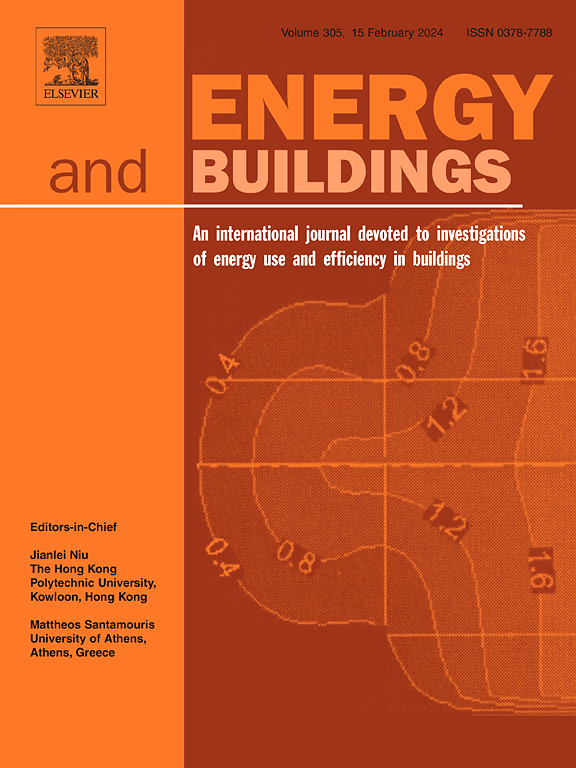Hybrid thermal load prediction model for the regional built environment based on random forest feature screening
IF 7.1
2区 工程技术
Q1 CONSTRUCTION & BUILDING TECHNOLOGY
引用次数: 0
Abstract
With the Chinese government’s strong call for energy conservation and emission reduction, the regulatory requirements for optimizing the energy-carbon relationship in buildings are increasing. Accurate thermal load prediction in the built environment is essential for optimizing heating system design and operational strategies. To correctly forecast the heating energy load of regional buildings, this research proposes a hybrid prediction model that uses random forest (RF) feature screening as input variables and the bi-directional long short-term memory (Bi-LSTM) network for extracting the relationships between the features and the loads. The comparison results demonstrate that the hybrid model enhanced by RF has dramatically improved the calculation speed and prediction accuracy compared to the original model. The proposed RF-Bi-LSTM model showed significant improvements in prediction accuracy and computational efficiency compared with traditional models (exemplified by LSTM). Specifically, the root mean square error (RMSE) decreased by 12.7% from 1.057 for the conventional model to 0.923, the coefficient of variation of the root mean square error (CV-RMSE) was reduced by 12.7% (from 0.055 to 0.048), and the mean absolute percentage error (MAPE) decreased by 9.5% (from 4.54% to 4.11%). Furthermore, the computational time was significantly shortened by 37.8%, decreasing from 111 s to 69 s. These results highlight the superior performance of the hybrid model in balancing accuracy and efficiency for building load forecasting tasks. The model can contribute to energy saving and carbon reduction by reducing building energy consumption through precision load forecasting.

基于随机森林特征筛选的区域建筑环境混合热负荷预测模型
随着中国政府对节能减排的强烈呼吁,优化建筑的能源-碳关系的监管要求也越来越高。建筑环境中准确的热负荷预测对于优化供热系统设计和运行策略至关重要。为了正确预测区域建筑供热负荷,本研究提出了一种混合预测模型,该模型以随机森林特征筛选作为输入变量,利用双向长短期记忆网络提取特征与负荷之间的关系。对比结果表明,经射频增强的混合模型与原模型相比,计算速度和预测精度有了显著提高。与传统模型(以LSTM为例)相比,所提出的RF-Bi-LSTM模型在预测精度和计算效率方面均有显著提高。其中,均方根误差(RMSE)由传统模型的1.057降至0.923,降低了12.7%;均方根误差变异系数(CV-RMSE)由0.055降至0.048,降低了12.7%;平均绝对百分比误差(MAPE)由4.54%降至4.11%,降低了9.5%。计算时间从111 s减少到69 s,显著缩短了37.8%。这些结果表明,混合模型在平衡建筑物负荷预测任务的准确性和效率方面具有优越的性能。该模型通过对负荷的精确预测,降低建筑能耗,达到节能减排的目的。
本文章由计算机程序翻译,如有差异,请以英文原文为准。
求助全文
约1分钟内获得全文
求助全文
来源期刊

Energy and Buildings
工程技术-工程:土木
CiteScore
12.70
自引率
11.90%
发文量
863
审稿时长
38 days
期刊介绍:
An international journal devoted to investigations of energy use and efficiency in buildings
Energy and Buildings is an international journal publishing articles with explicit links to energy use in buildings. The aim is to present new research results, and new proven practice aimed at reducing the energy needs of a building and improving indoor environment quality.
 求助内容:
求助内容: 应助结果提醒方式:
应助结果提醒方式:


